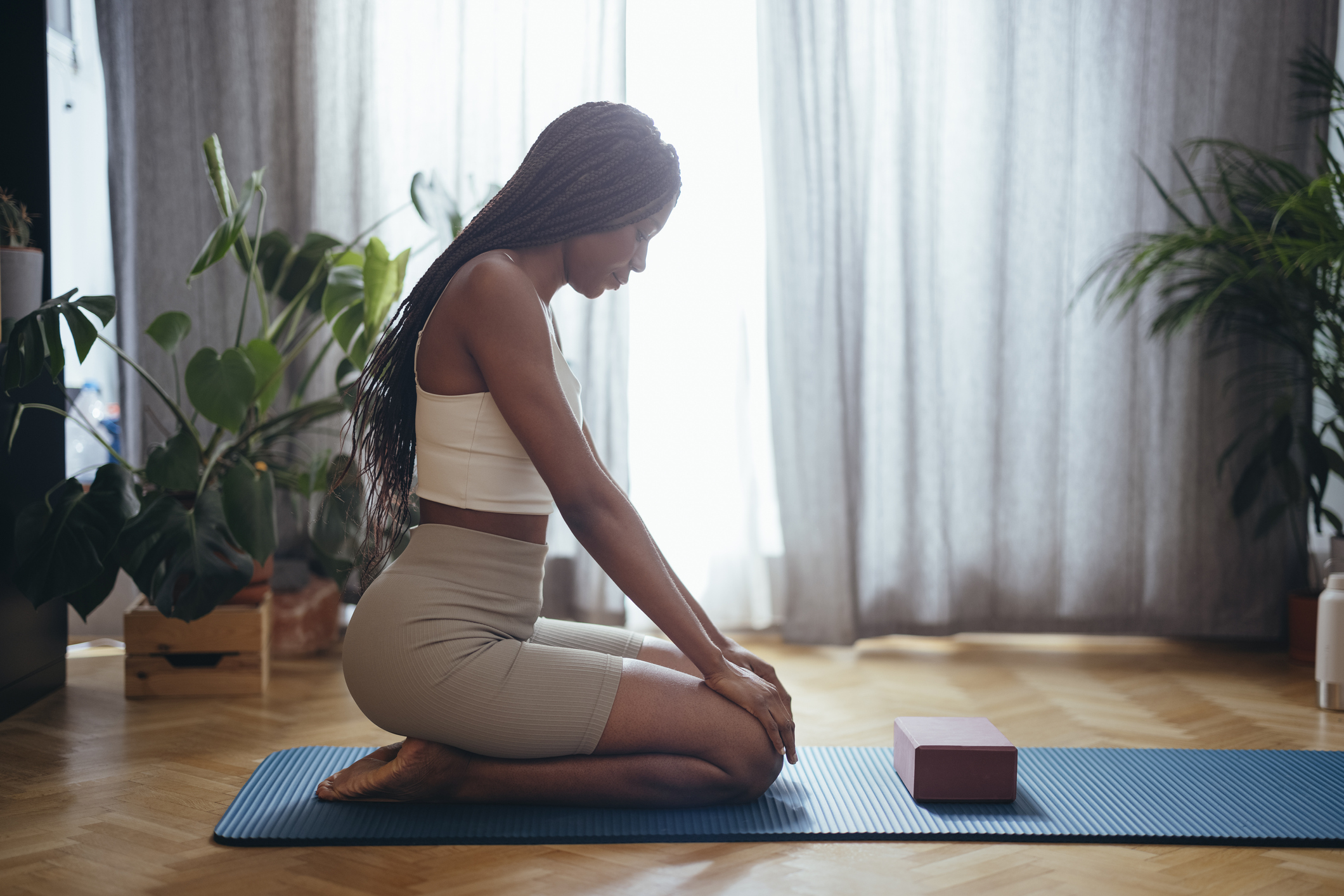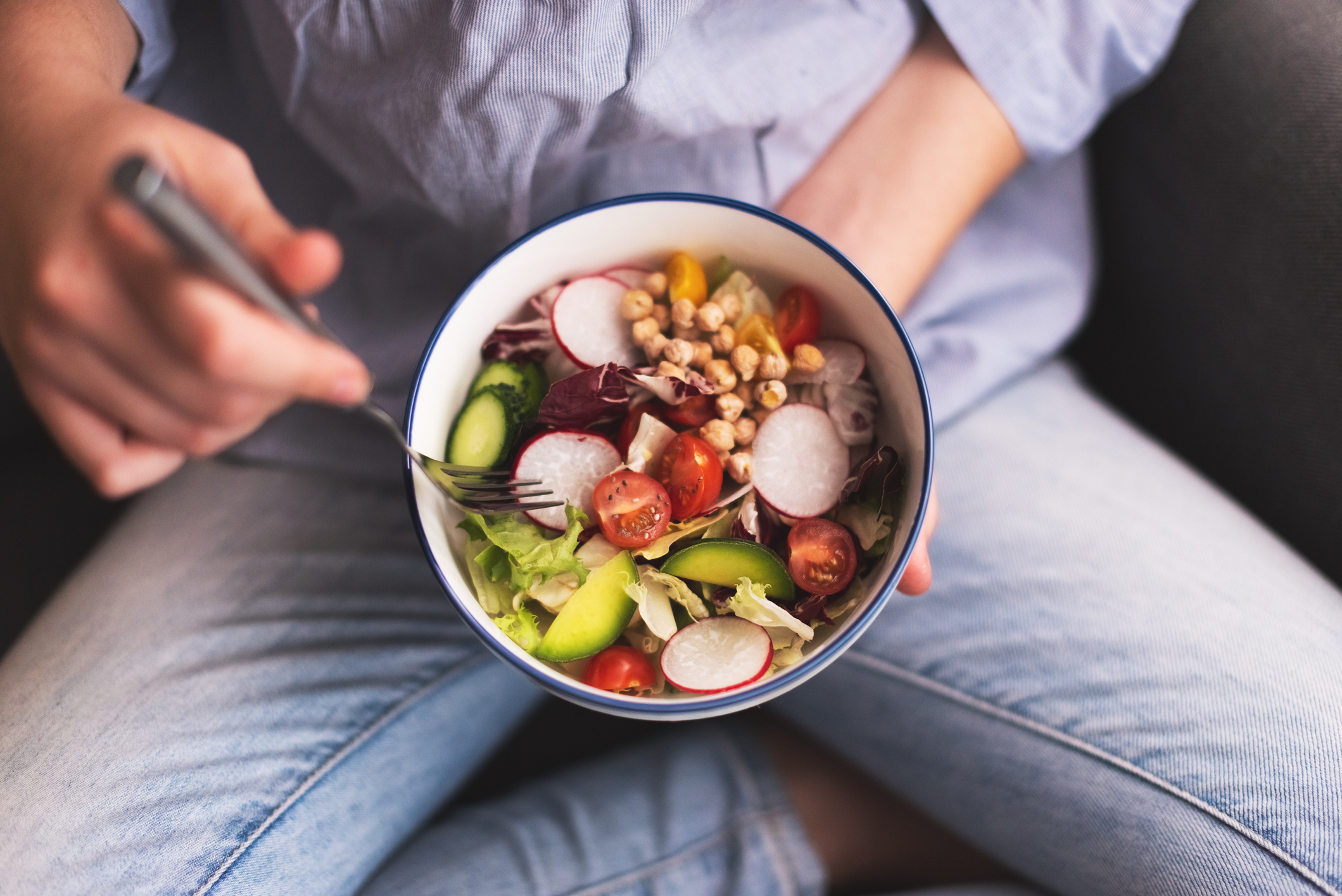
Celebrity news, beauty, fashion advice, and fascinating features, delivered straight to your inbox!
You are now subscribed
Your newsletter sign-up was successful
Did you know? As many as 3.4 million people in the UK have an eating disorder of some kind, according to stats from BEAT charity.
Let that sink in for a second - that's around five per cent of the total population.
Trigger warning - article contains themes of eating disorders.
Not sure exactly what an eating disorder (ED) is? According to the NHS website, it's a mental health condition "where you use the control of food to cope with feelings and other situations." This can range from anorexia - where you fixate on weight loss, eat very little food and sometimes exercise too much in a bid to lose as much weight as possible - to bulimia, where you eat but then regularly make yourself sick to "purge" and maintain what you deem an "ideal" weight.
In more recent years, although not medically identified as of yet, doctors have seen a rise in reports of what they call "orthorexia", a type of eating disorder where you obsess over eating what you deem to be "healthy" foods, restrict certain food groups unnecessarily and for no medical reason, and avoid social situations where food that doesn't fit your ideal may be served.
While some eating disorder symptoms are more obvious or easy to spot - vocally refusing to eat, weight loss, and so on - others, not so much. By their very nature, ED's are sneaky - they are mental health disorders, after all, and often convince the victim to hide their behaviour, mask their feelings, or lie about their eating habits, for fear of what others might say.
To mark Eating Disorder Awareness week this week, we spoke to specialised eating disorder counsellor Ruth Micallef (MBACP Reg) about the eating disorder symptoms to have on your radar, plus rising social media trends that promote disordered eating habits.
Celebrity news, beauty, fashion advice, and fascinating features, delivered straight to your inbox!
Eating disorder symptoms: 11 to know about
1. You're restricting yourself or only eating certain foods
There is absolutely nothing wrong with eating green smoothies and aesthetic açai bowls but we can't live on these foods alone, explains Micallef.
"Restricting or eating only a "clean" diet is damaging for a number of reasons," she shares. "Firstly, inevitably when you restrict, you likely end up "bingeing" as your body and mind struggles with the restriction. It's a vicious cycle of your mind convincing you to eat less, but your body needing sustenance."
Secondly, this type of diet and exercise routine is counterproductive for your hormones. "Sometimes green juice will be spot on, but at other points in the month, you'll crave comfort food," she explains. "By ignoring your intuitive inclinations, you run the risk of developing a host of hormonal challenges, from missed periods, to no period at all."
2. You're over-exercising
Similarly to the above, those with ED's often see exercise as a way of "purging" excess calories consumed.
"This means exercise is being used to get rid of the calories you have eaten or as a form of punishment for what you've consumed," the specialist explains.
As with food, she goes on, by ignoring your intuition about what type of exercise or rest your body needs, you run the risk of messing up your hormones, damaging your body, and losing exercise motivation for the types of mindful movement you truly enjoy.
Just like nutrition, different types of movement and rest are optimal at different points of your menstrual cycle phases, and frankly, there is nothing fun in a forced workout, she goes on.

3. You're obsessed with things being "perfect"
One of the most common eating disorder symptoms Micallef sees in her clinic? Clients striving for perfectionism.
"It's a trait bred from a need to cope with issues via control and attainment," she explains.
The problem with perfectionism is that it inevitably leads to burnout, she goes on. "While the idea of endless lists to tick off and a perfectly aesthetic life may seem like a good idea, it will inevitably end in physical and mental exhaustion."
4. You're trying too hard to look like another body ideal
This one is self-explanatory, she explains, but trying to look like a person you are not will only make you miserable. Every body has a different set point and looks different, so there's no point in trying to force your body into an unattainable body ideal.
"The #thatgirl trend is predominantly white, thin, and wealthy women, leaving little scope for those who are also healthy but don't look that way," shares Micalleff. "Feeling good within yourself is truly unique to you, and really has nothing to do with how polished your TikTok reel is," she reassures.

5. You're constantly jumping on new restrictive trends
Sound familiar? This can be anything from a new diet, like the 4:3 diet or Cambridge diet, to cutting out food groups just because you've seen someone else do it.
"By stepping away from unattainable trends, you have time to really consider what wellness looks like to you and how it fits into your lifestyle," shares the expert. "As a mummy to a toddler, I have no time for essential oil diffusers, excessive skin care, and high intensity interval training every morning, but a bowl of nourishing porridge, fruit, and nuts and a forest walk to my clinic does the treat."
As per the NHS website, other eating disorder symptoms include:
- Spending a lot of time worrying about your weight and body shape
- Avoiding socialising when you think food will be involved
- Eating very little food
- Making yourself sick or taking laxatives after you eat
- Having very strict habits or routines around food
- Changes in your mood such as being withdrawn, anxious or depressed.
Every disorder will be unique to the individual suffering from it. If you have any worries at all about your relationship with food, do visit your GP, and know this: you are not alone, and you will get through this.
So, is TikTok promoting disordered eating habits?
Short answer? Micallef thinks so. Take the #ThatGirl hashtag, for example - a trending tag with over 2.7 billion views where videos show you how to level up, wellness style. Girls show you how to manifest, organise your fridge the right way, wake up early, journal, meditate, what to eat after a workout, and how to fit all of that in pre-work or school.
"That" girl, of course, isn't one girl, but rather an idealistic, unattainable archetype that's been growing in popularity since April last year. While some of the tips can be handy for improving your day-to-day - drink more water, stretch regularly, try some new yoga poses - what the trend forgets is that every human is different, and so will need to do different (not identical) things to feel their best self.
The TikTok trend errs on the obsessive (and pushy) clean eating trend from a few years ago. It's easy to see how, if you're struggling with your self-confidence as is, you might view the videos and put immense amounts of pressure on yourself to become that girl, rather than working out what actually works for you.
So what does the expert think of the trend? "I hadn’t heard of the #thatgirl trend until a client pointed it out to me," the eating disorder specialist explains. "When I did scroll through the #thatgirl TikTok videos, I wasn’t just horrified - I was triggered."
"The TikTok aesthetic might promote these behaviours as the pinnacles of health and wellness, but there's a darker side to the culture. I know when to call out damaging behaviours disguised as a healthy lifestyle, and from what I can see, #thatgirl seems only to live on green juice, smoothie bowls, iced coffee and matcha, getting up at 5am every day to work out, without any breakfast prior. While I appreciate efforts from TikTok-ers to make the trend more relatable and sustainable, the roots for me remain in disordered eating and perfectionism."
Bottom line: there’s nothing more powerful than showing up as your true, authentic self, she shares.
"Disordered eating isn't about food itself - it's about coping with trauma."
Ruth Micallef isn't just an eating disorder counsellor, but an ED survivor, too. Here, she shares an insight into her story.
"It’s been roughly a decade since, at 21, I recovered from the symptoms of orthorexia nervosa, a disordered eating pattern that involves harmfully coping through a "perfect" diet and exercise routine."
"Disordered eating, much to most people’s surprise, isn’t about food itself, it’s about coping with trauma and adversity in the only way you know how."
Think you might be struggling? How to get help
Fear that you are struggling with disordered eating or an eating disorder?
Do reach out to a registered professional who can both help you to understand the roots of your eating disorder and then begin to process them, too.
Charities like Beat, SEED, and Mind are also a great place to start.

Ally is Marie Claire UK's Senior Health and Sustainability Editor, a well-regarded wellness expert, ten-time marathoner, and Boston Qualifying runner.
Utilising her impressive skillset and exceptional quality of writing, she pens investigative, review and first-person pieces that consistently demonstrate flair and originality.
As well as writing, Ally manages a team of freelancers, oversees all commissioning and strategy for her pillars, and spearheads the brand's annual Women in Sport covers, interviewing and shooting the likes of Mary Earps, Millie Bright, and Ilona Maher. Shortlisted for three BSMEs and winning one in 2022, Ally lives and breathes her verticals: her eye for a story and connections within the wellness sphere are unrivalled. Follow Ally on Instagram for more.
